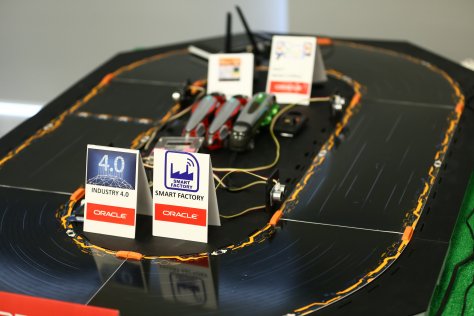Data is at the core of successful smart city innovation, according to new research from Oracle and economic and urban research consultancy ESI ThoughtLab. The Building a Hyperconnected City study found that cities are drowning in data from advancements such as Internet of Things (IoT). The survey projected that there will be more than 30 billion connected devices generating data by 2020. The study notes that for cities to become truly ‘smart’, they must have a cloud infrastructure in place to extract, integrate, and analyse this data to glean the insights needed to enhance everything from citizen services to building projects.
The report surveyed 100 cities across the United States, APAC, EMEA and LATAM. Abu Dhabi and Dubai were recognised as one of the world’s top Hyperconnected Cities that are making progress on interconnecting Urban Ecosystem and realising benefits.
The hyper-connected multiplier effect
According to the study, the average return on investments in hyper-connected initiatives ranges from three-four percent. As cities become more interlinked, their ROI grows: cities just starting out realise a return of 1.8 percent for implementers and 2.6 percent for advancers, while hyper-connected leaders see a 5.0 percent boost. That can translate into enormous returns ranging from $19.6 million for implementers to $40.0 million for advancers and $83 million for hyper-connected leaders.
Other key findings from the study include:
- AI, Blockchain and biometrics are increasingly pervasive: Cities are using these technologies in key urban areas, such as IT infrastructure and telecoms, mobility and transportation, payment and financial systems, and physical and digital security. City leaders need the right technology platforms and applications to implement and leverage these tools and capabilities.
- Cybersecurity requires careful planning and is expensive when not implemented properly: The study revealed that half of the 100 city leaders surveyed do not feel adequately prepared for cyberattacks.
- Smart initiatives are bolstering constituent satisfaction: While physical and digital security top the list of priorities, citizen engagement and satisfaction have risen as a top five goal. 33 percent of innovative leaders in North America have appointed Chief Citizen Experience Officers.

Oracle’s ‘Smart city’ inside the ‘Zayed Innovation Hub’
“The public sector, particularly at local level, is dealing with seismic technological, demographic and environmental shifts. Data is the rocket fuel for this transformation, and progressive cities are turning to cloud, data platforms, mobile applications and IoT as a way to scale and prepare for the future,” said Susan O’Connor, global director for Smart Cities, Oracle. “In contrast, not taking advantage of emerging technologies such as AI, Blockchain or virtual and augmented reality comes at a cost. Cities of the future need strategic, long-term investments in cloud data architecture, along with the right expertise to guide them through.”
Oracle’s Smart City solutions aim to transform the ways cities can harness and process the power of data through the integration of modern digital technologies and channels. The platform integrates technologies spanning cloud, digital outreach, omnichannel service, case management, mobility, social, IoT, Blockchain, and artificial intelligence while helping ensure comprehensive
security and information privacy.





